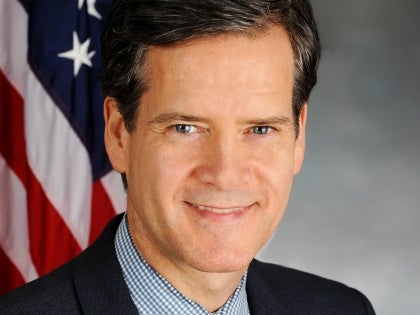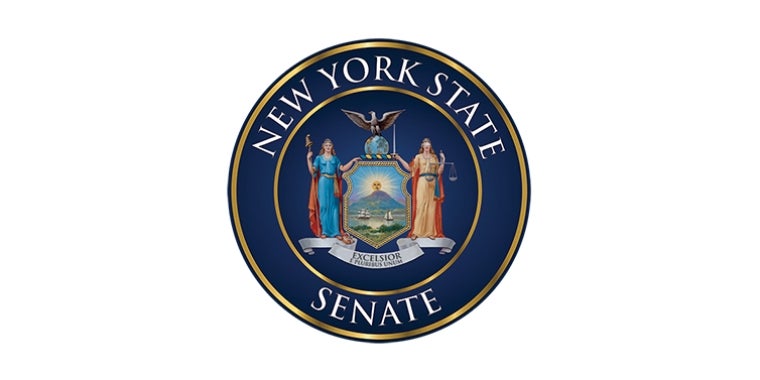
Reuters: Court of appeals nominee faces questions about objectivity
February 4, 2013 : By Daniel Wiessner
ALBANY, N.Y., Feb 4 (Reuters) - Members of the New York State Senate Judiciary Committee on Monday grilled Court of Appeals nominee Jenny Rivera about her lack of judicial experience and her ability to remain objective as a judge.
Rivera, 52, was nominated last month by Gov. Andrew Cuomo to fill the vacancy left by Judge Carmen Beauchamp Ciparick, who retired at the end of 2012. Rivera has served on the faculty of CUNY for 15 years and has written extensively on social justice issues during her academic tenure.
During a confirmation hearing at the state Capitol in Albany, several Republican members of the Judiciary Committee expressed concerns that Rivera did not understand the nuts and bolts of everyday legal practice.
"The study and practice of law are night and day," Sen. John Bonacic, an Orange County Republican and the chair of the committee, said to Rivera. "Your work seems much more theoretical than practical.
Throughout the hearing, Rivera repeatedly defended her record, saying that during her career she had worked with people from "all different backgrounds and perspectives."
"I'm confident this would guide me to the most legally sound decisions, even in the most complex cases," she told the Senate panel.
The committee, which is comprised of both Republicans and Democrats, will vote on Rivera's confirmation on Tuesday. The full Senate is expected to vote next week.
Rivera has served on the faculty of CUNY Law since 1997, except for a 17-month stint as a deputy attorney general for civil rights under Cuomo, who was then the attorney general.
At CUNY, Rivera teaches administrative law, civil procedure, wills and trusts and lawyering.
Before becoming a professor, she worked as an administrative law judge with the state Division of Human Rights and was a member of the New York City Commission on Human Rights. From 1993 to 1994, she clerked for Supreme Court Justice Sonia Sotomayor when she was a judge in the Southern District.
In the 1980s, Rivera did stints at the Legal Aid Society and the Puerto Rican Legal Defense and Education Fund.
ACADEMICS VS JUDGES
If confirmed, she would become the court's second Hispanic judge, following Ciparick. She would join a small minority of judges who had no experience on the bench before ascending to the state's top court, including former Chief Judge Judith Kaye and sitting Judge Robert Smith.
During Monday's hearing, Bonacic said that the committee had reviewed Rivera's academic writings, which focused almost exclusively on women's rights, discrimination and other social issues. While he said her passion for social justice was noble, he questioned her ability to remain objective if confirmed.
Rivera distinguished between the work of academics, whom she said are expected to challenge current understanding of the law, and the work of judges, saying she could remain neutral if confirmed to the court.
"The role of a scholar is to think out of the box," she said. "The role of a judge is to follow the law."
At one point, Sen. John DeFrancisco read from a 2007 paper penned by Rivera entitled, "An Equal Protection Standard for National Origin Subclassification," and said that some of her writing was confusing.
DeFrancisco went on to suggest that Rivera may not be able to rule objectively in an equal protection case, and asked her whether she would like to see the Court of Appeals "move in a more progressive manner."
Rivera replied that as a judge, she would "follow jurisprudence" and repeated that the role of a judge was distinct from that of an academic.
Judges must "recognize that when they put on the robes, those litigants are real people standing in front you ... and that it is not an abstraction," she said.
On Monday, New York State Bar Association President Seymour James, state Trial Lawyers Association Michael Jaffe and CUNY Law Dean Michelle Anderson, briefly testified on Rivera's behalf.
During the hearing, several Democratic senators on the committee praised her work in public service and academia.
Sen. Brad Hoylman, a Manhattan Democrat, said he was impressed that Rivera, who graduated from Princeton University and NYU Law School, decided to pursue a career in public service and academia instead of joining a private firm. He singled out her work with CUNY Law's Center on Latino and Latina Rights and Equality, which she founded in 2008.
"You have not just been in the ivory tower, you've had some real practical, public service experience," he said.

